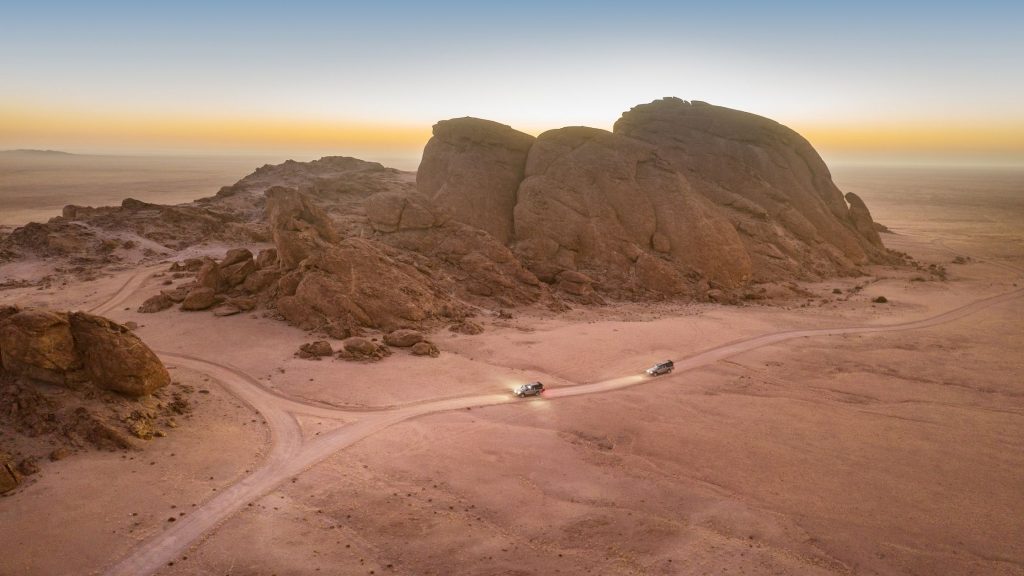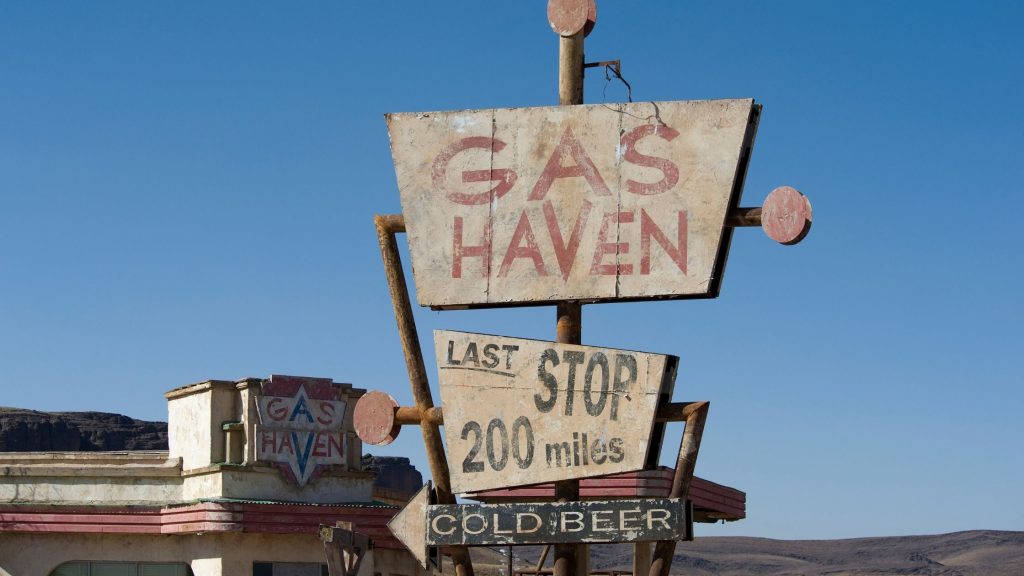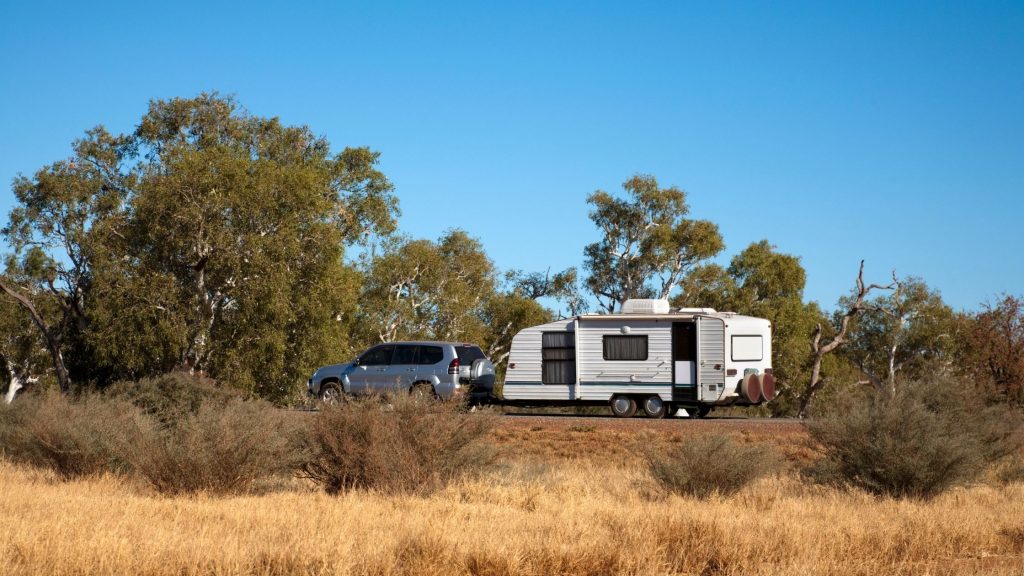When buying a car, you usually think about the make and model you like the best, the engine’s size, and maybe a color if you are fussy. But I bet you never think about the fuel your new car is going to run on. That’s simply because the American market offers you primarily gasoline engines.
The same goes for small and medium-size pickups. Although more manufacturers provide diesel engines in their big vehicles every year, you will be hard-pressed to find car dealers who have many diesel-powered cars and small pickups in their stock.
But what if you want to go Overlanding and you’re looking to buy the best vehicle that will suit your needs?
In that matter, you have a choice between diesel and gasoline engines. Now, you may have a question which one is better for that long-distance driving you are planning?
Let us go over both types of engines and help you decide.
Diesel Engine For Overlanding
Unlike in Europe, Asia, South America, Australia, and Africa, diesel engines are not popular in North America. Only 5% of vehicles on American roads are fuelled by diesel. Compared with other continents, where diesel engines account for more than half of the cars traveling the streets, that’s a very insignificant amount.
Diesel cars are often thought of as outdated, slow, and dirty. With new advancements in technology, there are now eco-friendly options for motorists who would like the benefits of diesel engines without affecting performance or being harmful to the environment.
- More efficient (30% less fuel)
- Lower CO2 emissions (20%)
- More torque (towing, going off-road)
- Longer life span
- Less service
- Depreciate at a slower rate
- More expensive to buy
- More expensive service
- Higher NO2 emissions
- Diesel particulate filter (DPF) can get clogged if driven on short distances
Gasoline / Petrol Engine For Overlanding
Since the beginning of the automobile era in the United States, gasoline has reigned supreme; today, gasoline powers upwards of 95 percent of passenger cars and light trucks on American highways. Because the United States has long been one of the world’s largest oil producers, oil prices have historically been low for Americans.
Cars with big engines and high top-end speeds have always been popular in the United States, a vast country with a lot of open space. That has been particularly true since the 1960s when muscle cars first appeared on the scene.
To put it another way, Americans have always prioritized power, luxury, and sentiment over saving fuel and lowering emissions. Diesel engines are not as widely accepted in the United States.
- Cheaper to buy
- Gas is less taxed
- Quieter engine
- Low service costs
- Less efficient
- Higher CO2 emissions
- Depreciate at a faster rate
Fuel Economy When Overlanding

One important factor at the forefront of every Overlanders mind when choosing a vehicle is fuel economy. After all, we are putting thousands of miles on our vehicles regularly.
Advanced fuel economy and efficiency make diesel vehicles more economical to drive. Diesel fuel has a lower calorific value and is denser than gasoline. It also burns steadily and rapidly.
So, you have 10-15% more energy for a gallon of fuel than gas; therefore, it can take you 20-35% further between refueling stops. This fact makes the diesel engine an excellent choice for long-distance travel.
The only backdrop from that in America is the taxation of the fuel. As of October 2020, the gasoline tax is 18.4 cents per gallon, whereas it is 24.4 cents per gallon for diesel.
Fortunately, depending on the state, this may not make that much of a difference after all (i.e., Colorado, Florida, Kentucky, Nevada, Montana diesel is still cheaper than gas.)
Reliability
Ever break down in the middle of nowhere? If you have, you know it’s not a fun experience. If you haven’t, I can assure you it’s not something you want to encounter.
If you have a newer vehicle, it’s safe to assume that both diesel and gas are fairly reliable, although unless you plan on getting a new vehicle regularly, you will have to think about how your vehicle holds up when it gets older.
Generally, a diesel vehicle engine is considered a more reliable and robust engine. The only caveat to a diesel engine’s reliability is that it may be more difficult and costly to repair if something goes wrong.
For doing big mileage as you would when Overlanding, diesel is usually a better option in terms of reliability.
Diesel-powered vehicles are typically built using heavy-duty components that can easily withstand the vehicle’s power, which means less depletion on the engine parts. That, in turn, transfers to higher longevity of the engine and fewer repairs needed during your Overlanding adventures.
Fuel Availability

Overlanders tend to find themselves in pretty remote areas and an important fact to consider is how likely are you to find the type of fuel you are running.
If you’re traveling around North America, trails can often be long and remote. You might be lucky if there is a nearby village to fill up.
I went so far as to install an extra fuel tank to my vehicle, and I highly recommend this if you plan on getting off the beaten path.
There are about 115,000 gas stations in the United States, and only 55% of them sell diesel. Now, this might not seem so bad from the offset, but remember, you’re 45% less likely to find fuel if you have a diesel.
Also, let’s consider the fact that those filling stations are likely in populated areas, not some backwoods village where overlanders are likely to find themselves.
Those numbers may be better or worse depending on what part of the country you are in. If you are on the East Coast, your chances of finding diesel are only 51%.
However, if you are in the Rocky Mountains, it increases to 65%. Canada has the best overall with 69%.
Gasoline vs. Diesel Off-Road
When talking about gasoline vs. diesel off-road, we have to take into consideration that a lot of it is going to be personal preference.
Each side is going to have its argument, and it’s a surefire way to spark a debate.
In diesel engines, the compression ratio is higher than that of its gasoline-equivalent. The air in a diesel engine is compressed to such a high pressure and temperature that there is no need for spark, as fuel gets ignited automatically.
That fact is the reason why a diesel engine produces more torque than a gasoline engine. The torque is essential in off-roading because it stops the engine from working too hard when you need to keep your momentum over rough ground without increased speed.
This low-end torque is also great for climbing steep inclines without spinning tires or rocky terrain. When it comes to hill descent, diesel also wins here thanks to its better engine braking ability.
On the flip side, the gasoline car is going to be lighter, which is a considerable benefit when going off-road, especially in mud or sand.
The gas engines have a wider operating RPM range in each gear; this is great for sand or in the mud where you need to get rapid acceleration to clear the wheels.
Diesel vs. Gasoline Towing a Camper

Depending on the type of Overlanding you’re doing, you may or may not be towing a camper. While both vehicles are capable of towing, a diesel engine has the advantage.
We have to return to the one thing that diesel engines are famous for, yes it’s that torque again.
A gasoline engine has to rev hard to move the weight, where because of the torque in a diesel engine, it can do so with much less effort.
If you’re towing in hilly areas, a gasoline engine will be under a lot of stress, and you run the risk of stalling if the revs drop. On the other hand, a diesel shines best here and can easily climb hills slow and steadily.
Vehicle Cost
It’s no secret that a Diesel vehicle is a more expensive purchase when compared to gasoline. For a capable Overlanding vehicle, that price premium could be as high as $10,000.
But this higher price is usually offset because of better fuel economy and engine longevity.
Diesel vehicles’ value depreciates at a slower rate than gasoline ones mainly because, if properly maintained, it can easily make over 1 000 000 miles without a need for an overhaul.
In comparison, a gas engine could probably make a little bit over 200 000 miles before it needs some serious work.
If you plan on changing your vehicle regularly, a gasoline engine may be the better option. However, if you want to keep the vehicle for a long time, you will recuperate the extra money spent on a diesel.
Conclusion
While it may seem that the diesel is the overall winner, a lot of it really comes down to personal preference and what you intend on doing with the vehicle.
If this will be your full-time vehicle and you only overland infrequently, you may be better off with the gasoline. It’s cheaper to buy more suitable for short trips and better to drive around cities.
However, if you’re looking to keep a vehicle for a long time, or plan on long-term Overlanding, then a diesel engine might be the better option for you.
Whatever your choice, both types of engines are suitable for Overlanding as long as they are well maintained.
- Tips and tricks For Setting Up Camp Like a Pro - September 11, 2023
- The Best Multi-Tools for Overlanding Adventures - August 25, 2023
- Off-Road Navigation Tips for Overlanders - August 13, 2023


